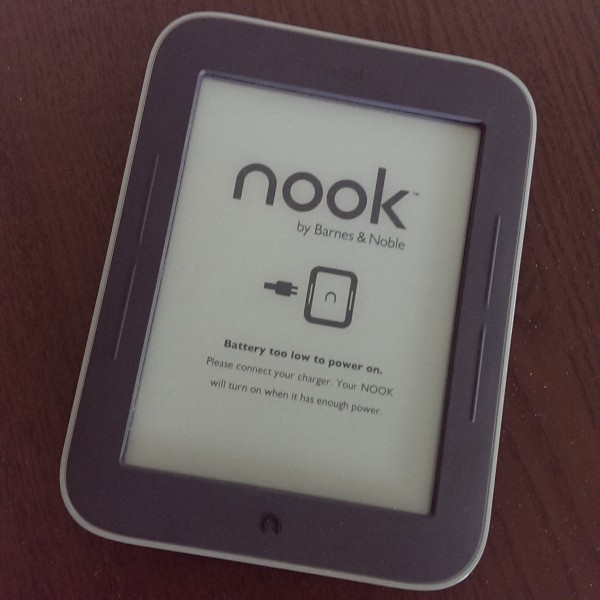They say that it’s hard for a company to shrink to greatness, but I do think that it’s possible to simplify to greatness. There’s been some moves in the e-reader world lately that raise the question, shrink or simplify.
Sony, the first mover in the dedicated e-reader world, recently announced that they will no longer make dedicated e-reading devices.
Beleaguered Barnes & Noble has arranged to separate the Nook e-reader and tablet business from the core retail book business. Interestingly, the new Nook division will also contain the campus bookstore business.
The proximate cause of both moves is pretty obvious: Amazon’s scorched-earth total disregard for profit in favor of growth and share strategy, and the cheap and innovative Kindle devices that it has spawned. Some also blame the iPad but I draw a distinction between the general-purpose tablet world (in which devices not called “iPad” are commodity) and the dedicated e-reader world where the key assets are a large and competitively priced book catalog and winning device design.
Sony never had a chance because they never had the bookstore. Barnes and Noble should have had a shot for the same reason, but they just couldn’t keep it together and fell behind in the hardware race. Maybe this is why Sony is giving up on the market while B&N is clinging to some kind of hope to either make it work or sell it off.
I wanted Barnes and Noble to win this one because I thought they had the brand and the following among people who read. Plus, I was annoyed with Amazon over text justification. Amazon started as a bookstore but has become so much more and in the process lost a clear connection to the reading public. But in the eyes of an independent bookstore lover, B&N is just as bad as Amazon. The e-reader for such folks is the seldom-mentioned Kobo, the indie darling despite being owned by ginormous ecommerce conglomerate Rakutan.
So B&N finds itself stuck in a vanishing middle. Indie readers won’t touch them because they’re corporate, so they lost that ground. Tablet buyers have no reason to buy a Nook tablet over a Nexus, a Fire, an iPad or a dozen other cheap imitators (including some from Sony and Kobo, btw). The stuff that e-ink reader devices differentiate on – battery life, screen resolution, frontlighting, weight and feel – are all done as well or better by Kindles and Kobos. And worst of all, Amazon wins the ebook price battle as often as not.
My advice to Barnes and Noble? It’s hard to say and harder to do, but it’s time to take this product line on a long walk in the woods. Drop the tablet business entirely, focus on the software for generic mobile devices, and recognize the e-reader for what it is: a loss-leader to sell more ebooks, which means it has to get priced way down, possibly to zero. It’s razors and blades, folks. Sharpen what’s sharp and don’t get tangled up in the rest.
If all it took to succeed in hardware was a big catalog of media, you’d see Netflix tablets and Hulu TVs all over the place. Even NPR’s cobranded internet radio didn’t turn many heads. Maybe the knob was weak.

